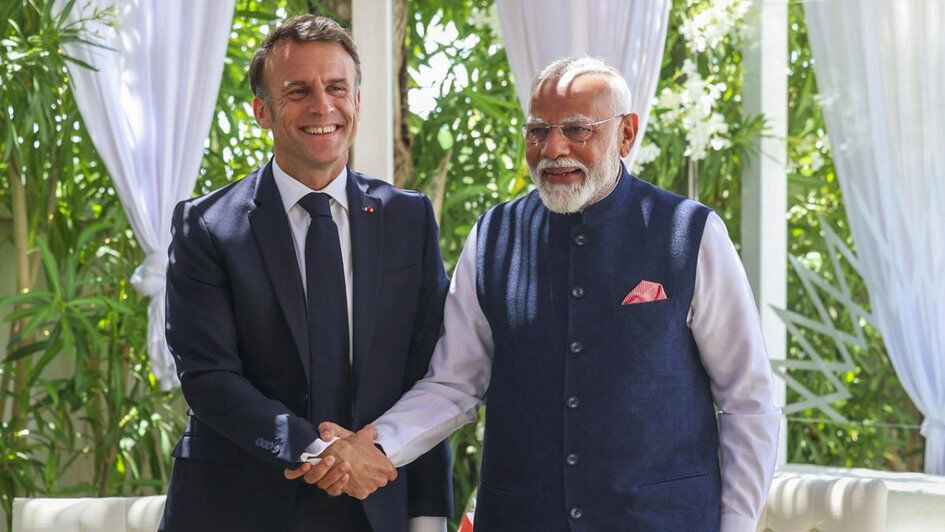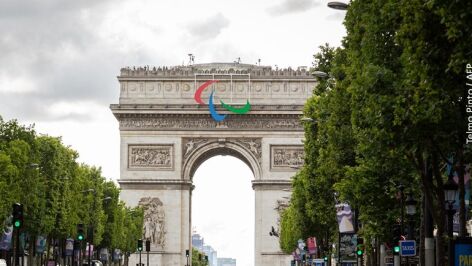 News
News 
France: India’s steady partner in green growth
India has long been a priority partner for the AFD Group, which has committed more than €4 billion for nearly 100 projects in India since 2008
Ambassador Thierry Mathou’s opinion piece in The Hindu
On July 14, 2023, in Paris, President Emmanuel Macron and Prime Minister Narendra Modi elevated the ‘Partnership for the Planet’ as one of the three pillars of the Indo-French Horizon 2047 Roadmap. This decision reflects the intensification of Indo-French cooperation over the past few years on issues such as climate change, biodiversity, health, and environment. It also shows a deep convergence of views between France and India: our two countries champion the idea that socioeconomic development and environment protection can go hand and hand, are committed to bridging North-South divides, and believe that we can together find sustainable solutions for the world and for our own green transitions. This has led to high-profile joint initiatives on the world stage, such as the International Solar Alliance. But the ‘Partnership for the Planet’ is more than that: it is made up of tangible projects in India, which advance a greener, more inclusive future.
A priority partner
What do one-horned rhino protection in Assam, Pune’s metro system, and Chandigarh’s future water supply system have in common? Behind each of these projects stands the French Development Agency (AFD), India’s steadfast partner to achieve its sustainability goals. The AFD Group is the operational arm of France’s international partnership strategy. It comprises AFD, its private sector arm Proparco, and the technical cooperation agency Expertise France. It pursues a holistic approach to development, seeking to harmonise growth with the achievement of Sustainable Development Goals (SDGs). It is engaged in over 4,200 projects across more than 150 countries. Last year alone, the AFD Group approved more than 1,000 new projects worth €13.5 billion.
India has long been a priority partner for AFD, which is active in four strategic sectors: energy transition, sustainable urban development, biodiversity conservation and resilience of territories, and reduction of inequalities. Since 2008, the AFD Group has committed more than €4 billion for nearly 100 projects in India, which are implemented by Indian public and private partners. That makes India the number one partner of the AFD in terms of financial exposure. A whopping 83% of its portfolio contributes to climate change mitigation and adaptation, and 63% addresses gender equality.
During my official visits across India, I have seen some of the AFD Group-financed achievements and heard the feedback from their Indian partners. They have all spoken of the true spirit of partnership in their relations with AFD or Proparco, which has led to building bridges between our two countries through the exchange of knowledge and expertise.
In 2023 alone, AFD approved four new loans in India totalling nearly €400 million for climate change projects: two credit lines to Indian public banks; a policy loan for Himachal Pradesh to boost its disaster risk management capacities; and a national programme for increased resilience in urban water management and sanitation in 20 cities to be selected through a challenge. Further, four environment protection projects were signed in 2023 and their implementation started. One is a project with Rajasthan for increasing forest cover, creating better conditions for wildlife to live and reproduce, while sustaining livelihoods of local communities. Another aims at improving sanitation in the small towns of Himachal Pradesh. The third seeks to improve solid waste management in 18 cities as part of CITIIS, India’s flagship circular economy programme. Last, a green credit line with the State Bank of India was disbursed for electric buses and energy-efficient housing. Two projects, which were chalked out a few years ago, were commissioned in 2023: the Nagpur and Pune metro rails. I am proud of these joint achievements that will translate into real benefits for the people and the planet.
Private sector-led projects
Supporting private sector-led projects is also key in delivering real impact for local communities. One such example is Proparco’s investment, along with other co-investors, of €11.2 million as growth capital in Sahyadri. It is the first international equity investment in a farmer-led organisation in India. The project will help 15,000 farmers reduce farm losses and the use of pesticides and fertilizers, as well as enable them to increase yields and the quality of their produce. In the health sector, Proparco approved in 2023 a €33 million equity investment in Quadria, an Indian private equity firm focused on investments in healthcare mid-caps across South and Southeast Asia. The project seeks to reduce the imbalance between affordable quality healthcare and the growing demand in underserved regions. These two projects showcase the private sector’s role in achieving SDGs.
I see this partnership growing into two new areas. First, our bilateral initiatives are increasingly acquiring an Indo-Pacific dimension. This is already the case in our Indo-Pacific Parks Partnership, which pools expertise in biodiversity protection from France, India, and other partners in the region. Our next endeavour is the creation of a joint fund for scaling up green technologies being developed in the region. Second, innovation is increasingly at the heart of AFD’s approach to India. AFD is always looking for innovative ideas that blend social inclusion with sustainability. The Indo-French Year of Innovation in 2026 will be a special moment to spotlight some of these solutions. Thanks to AFD and Proparco’s commitments to India, France is proud to be India’s steadfast partner in its journey towards a more resilient and equitable future.
Thierry Mathou is Ambassador of France to India
The opinion piece was published in The Hindu on 3rd July 2024.






Comments
You must be logged in to leave a comment. Log in